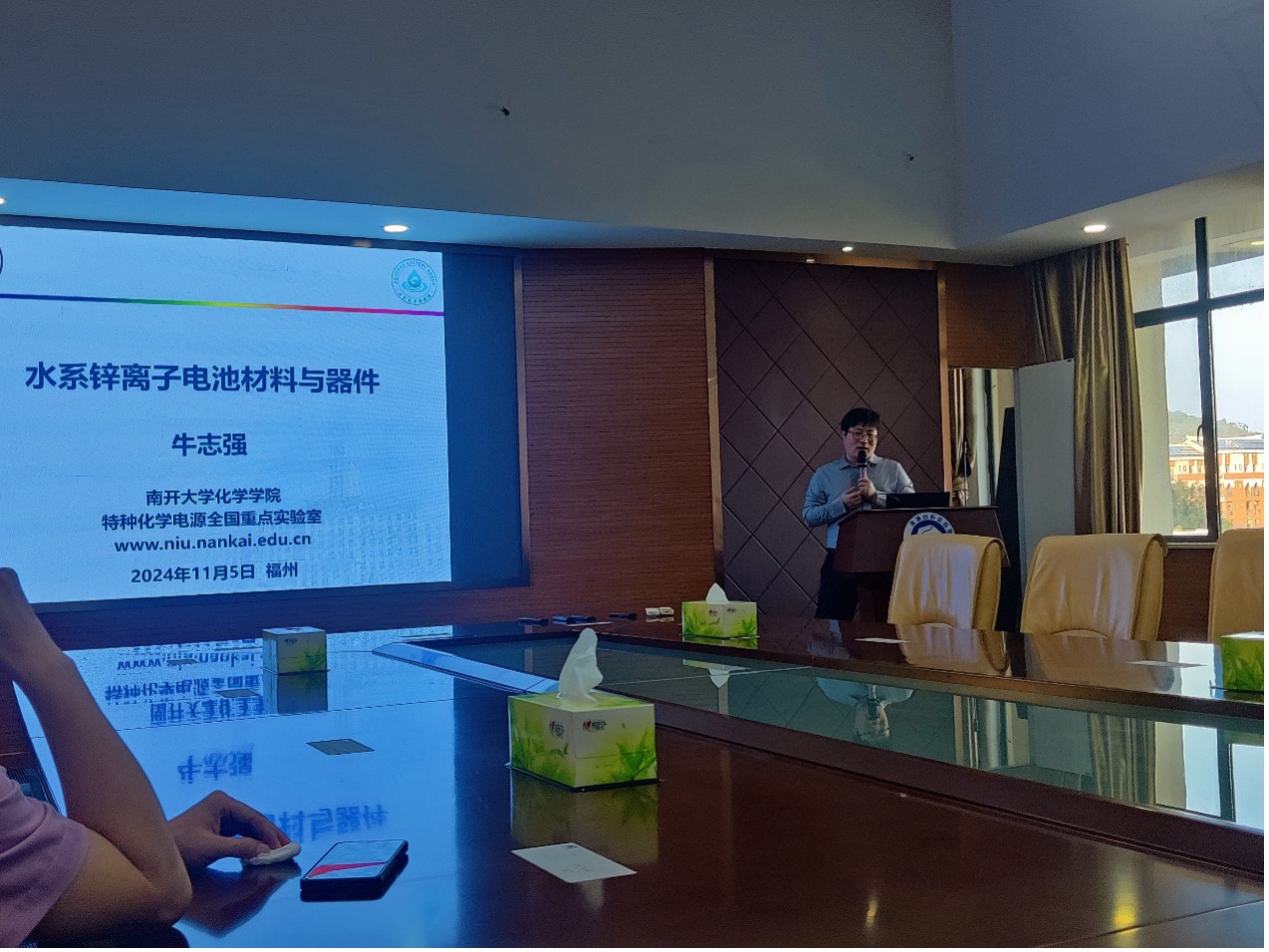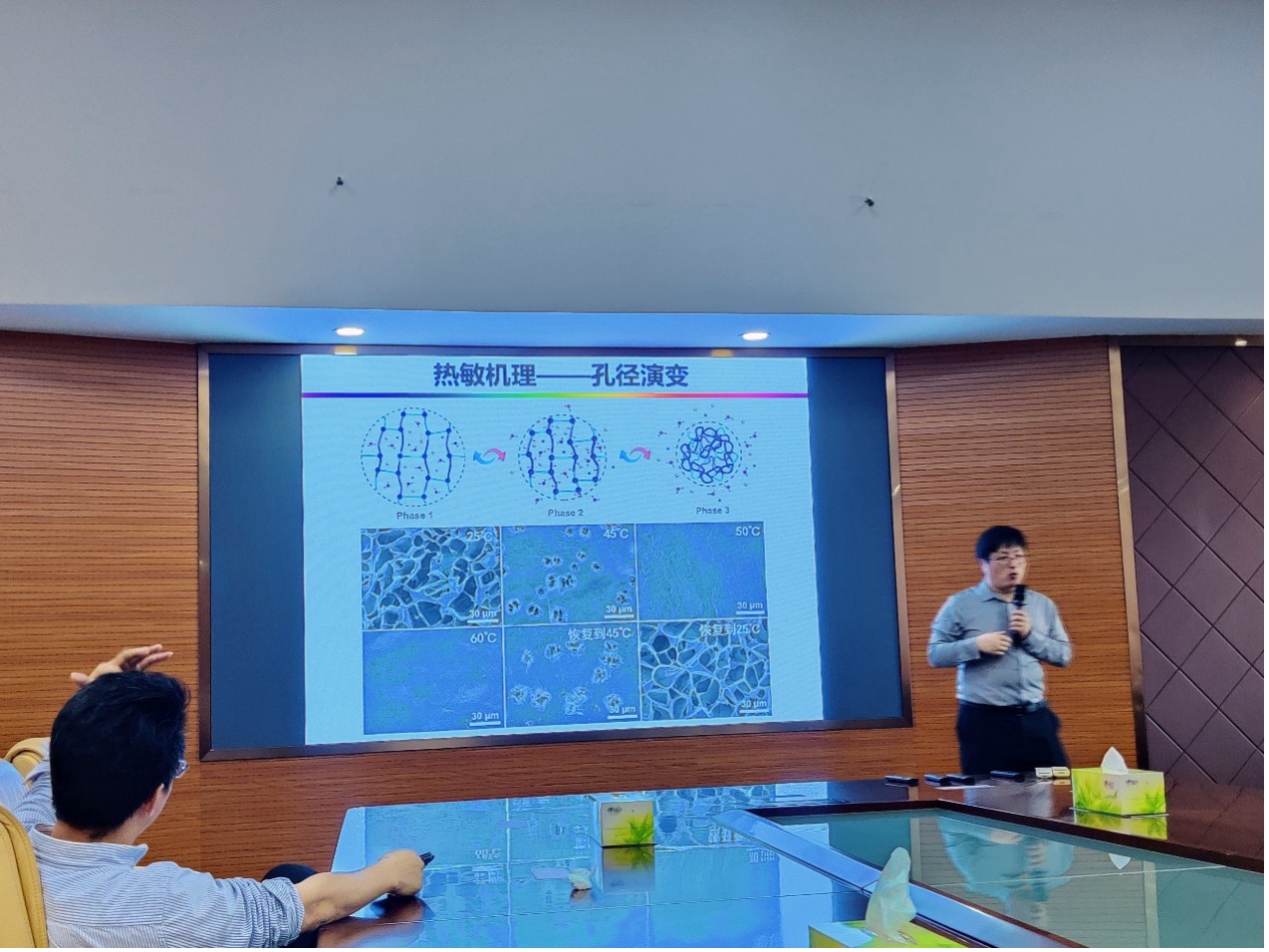On November 5, 2024, Professor Niu Zhiqiang from Nankai University was invited by Professor Yuxin Tang from Fuzhou University and Qingyuan Innovation Laboratory to visit our research group for exchanges. He also delivered an excellent academic report titled "Materials and Devices for Aqueous Zinc-ion Batteries" in the conference room 501 of the library.

Lecture scene
Aqueous zinc-ion batteries have attracted extensive attention in the field of large-scale sustainable energy storage due to their high safety, low cost, and ecological friendliness. Compared with organic electrolytes, aqueous electrolytes have higher safety, simpler assembly, faster ion migration, and higher ionic conductivity. Advanced aqueous zinc-ion batteries have the potential to be widely used in low-speed vehicles and scalable large-scale energy storage. However, aqueous zinc-ion batteries face problems such as the easy dissolution of the positive electrode, slow kinetics, zinc anode dendrites, and hydrogen evolution. In response to the above problems, Professor Niu Zhiqiang shared strategies such as ion introduction, carbon nanocomposites, crystal form regulation, and molecular design to effectively regulate the micro-nano structure of the positive electrode active materials and develop a series of high-performance manganese-based, vanadium-based, and organic positive electrode materials. In terms of the negative electrode/electrolyte interface, strategies such as the development of electrostatic shielding effects, in-situ assembly of protective coatings, and the construction of three-dimensional current collectors have effectively improved the cycle life of the zinc anode. In addition, for different application scenarios, through the design of the device structure, flexible pouch, wire-shaped, microstructured, and integrated flexible zinc-ion batteries have been developed, and through the regulation of their functions, intelligent designs such as compressibility, self-healing, self-protection, and self-charging of the devices have been achieved.

Lecture scene
The participants actively engaged in the discussion session and had in-depth exchanges with Professor Niu Zhiqiang on research in related fields. This further promoted academic cooperation and the development of disciplines.
This exchange activity broadened the academic horizons of the teachers and students and provided inspiration for future research directions. Through the sharing and discussion of academic reports, it promoted the cooperative exchanges among research teams and laid a foundation for further cooperation in the future.
